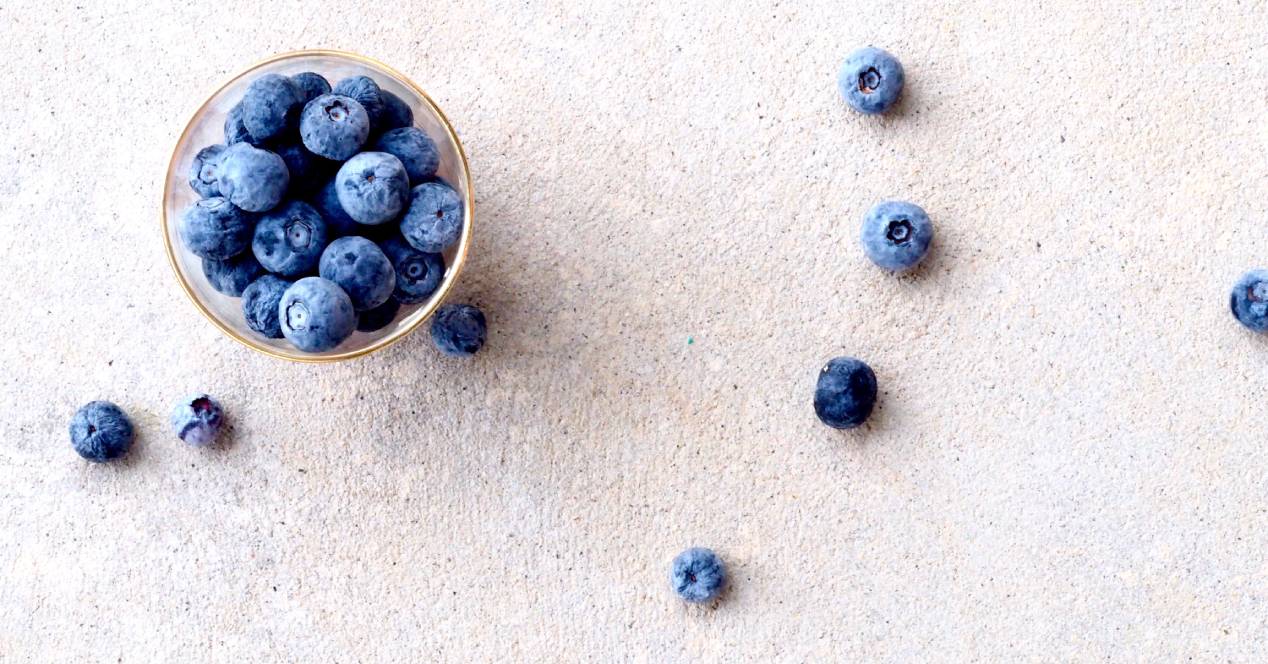
Diet has a close link with vision and eye health. we already told you how should you eat to have healthy eyes, and then we reveal five nutraceuticals (functional foods and supplements) that will significantly protect us from vision problems.
Blueberries
These small dark blue berries contain flavonoids (antioxidants) that protect the eye from oxidative damage light induced. A blueberry supplement slows the progression of myopia in children, increases lto secretion of tears in people with dry eye syndrome and suppress retinal damage generated by exposure to blue light. In scientific studies, blueberry products consumed for their anthocyanin content are the most frequently used. Doses range from 40 to 80 mg of cranberry anthocyanins, taken two to three times a day.
Coenzyme Q10
Coenzyme Q10 (CoQ10) is an essential cofactor in energy production for cells and a strong antioxidant that protects lipids, proteins, and DNA from oxidative damage. CoQ10 protects the eyes from oxidative stress generated by exposure to ultraviolet light. It is also true that it can help prevent the onset of glaucoma by normalizing intraocular pressure, increasing energy production in retinal cells and protecting nerve cells related to vision. A recommended dose of CoQ10 ranges from 90 to 200 mg per day. It can be found in foods of animal origin, especially meat and offal, or oily fish (sardines, horse mackerel, tuna, herring or mackerel). Even so, there are people who take it in the form of supplementation.
Ginkgo
Ginkgo is a tree native to Korea, China and Japan. Its extract, derived from the leaves, is rich in antioxidant polyphenols. These polyphenols have been shown to have neuroprotective effects on retinal ganglion cells and improve vascular function in the eyes; hence thus normalizes the intraocular pressure y glaucoma risk is reduced. The benefits of ginkgo in relation to glaucoma are enhanced when administered with bilberry anthocyanins. Its recommended dose is 120 to 160 mg per day.
Alpha lipoic acid
Alpha Lipoic Acid (ALA) is an essential cofactor for cellular energy production, as well as a powerful antioxidant. ALA inhibits the retinal ganglion cell death in cases of glaucoma and optic neuritis. It also improves visual sensitivity in the type I and II diabetics. The recommended dose, according to scientific studies, is approximately 300 mg per day.
Curcumin
Curcumin is a yellow pigment derived from the turmeric root, which has numerous antioxidant properties. In animal studies, this spice inhibited retinal cell degeneration caused by eye injury and, when applied directly to the eye, improves the symptoms of glaucoma.
Of course, making your own curcumin eye drops is not recommended. Laboratory models exist, including oral curcumin.